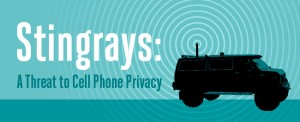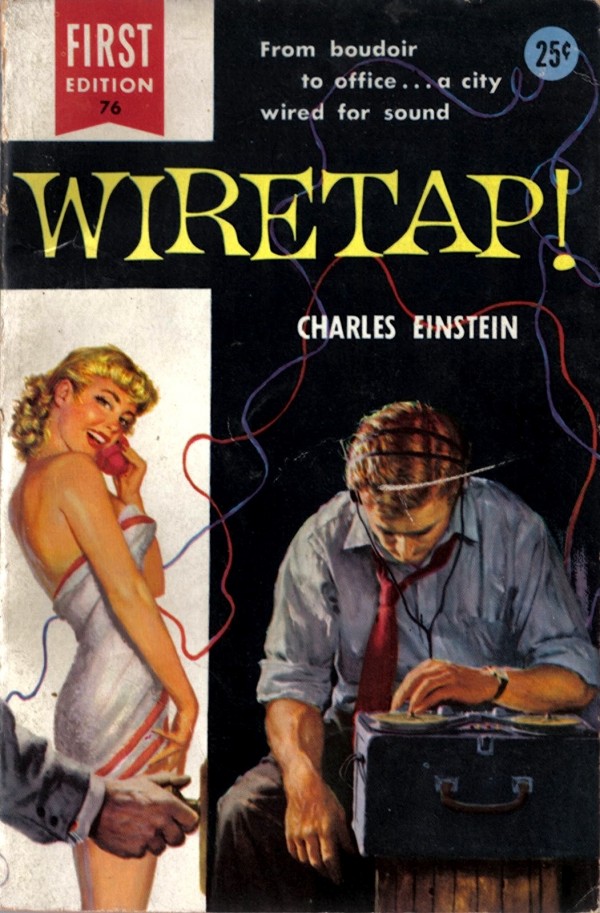![]() BY DUSTIN SLAUGHTER A recent Pew poll indicates that more than 70% of Americans oppose the National Security Administration’s bulk collection of cellphone metadata. For Pennsylvanians, the threat to security and privacy of your cellphone communications just hit a little closer to home. Phawker has learned that Pennsylvania State Police has recently purchased a controversial type of cell phone surveillance technology, known as HailStorm. Hailstorm has the ability to “trick” cell phones into connecting to the device by posing as a cell tower, enabling it to scoop up phone serial data within a targeted radius and track the user’s location. The bad news is that it doesn’t just scoop up the cell phone data trail of the bad guys, it scoops up everyone’s cell phone data within its monitoring radius — without a warrant. The technology is very portable and could be mounted in the police cruiser that just passed your house.
BY DUSTIN SLAUGHTER A recent Pew poll indicates that more than 70% of Americans oppose the National Security Administration’s bulk collection of cellphone metadata. For Pennsylvanians, the threat to security and privacy of your cellphone communications just hit a little closer to home. Phawker has learned that Pennsylvania State Police has recently purchased a controversial type of cell phone surveillance technology, known as HailStorm. Hailstorm has the ability to “trick” cell phones into connecting to the device by posing as a cell tower, enabling it to scoop up phone serial data within a targeted radius and track the user’s location. The bad news is that it doesn’t just scoop up the cell phone data trail of the bad guys, it scoops up everyone’s cell phone data within its monitoring radius — without a warrant. The technology is very portable and could be mounted in the police cruiser that just passed your house.
USA Today recently did lengthy takeout on the alarming proliferation of this phone-tracking technology on a state and local level, reporting that more than 25 state and municipal police departments  have currently deployed this technology while others have tech-sharing agreements with the FBI and other federal agencies. The Electronic Frontier Foundation calls the device “the biggest technological threat to cell phone privacy that you don’t know about, while the ACLU has roundly criticized the technology’s use as a clear violation of the Fourth Amendment’s “General Warrant” clause.
have currently deployed this technology while others have tech-sharing agreements with the FBI and other federal agencies. The Electronic Frontier Foundation calls the device “the biggest technological threat to cell phone privacy that you don’t know about, while the ACLU has roundly criticized the technology’s use as a clear violation of the Fourth Amendment’s “General Warrant” clause.
Four requests for the Pennsylvania State Police to confirm or deny our report have gone unanswered. However, we know for a fact that the State Police have purchased this technology because we have obtained a copy of the purchasing order through a PA Right-To-Know request filed in February. The documents indicate that State Police purchased two of the devices in December of last year from the controversial Harris Corporation at a total cost of $232,772. HailStorm is an “upgrade” to original StingRay technology which, if combined with a software named Pen-Link, enables authorities to communicate directly with cell service carriers over an Internet connection to strengthen real-time location tracking. It is not clear at this time whether State Police have this capability, although a records request is pending seeking Pen-Link contracts.
In addition to PSP’s Hailstorm upgrade, the agency also bought Harpoon ‘amplifier’ antennae, which allows State Police to vastly expand reach of its cellphone data collection. Once a StingRay gathers a phone’s “International Mobile Subscriber Number” (IMSI) and serial data, the phone can be singled out for closer scrutiny, including real-time location tracking. This has drawn increasing scrutiny – and criticism – from legal advocacy groups such as the ACLU and the Electronic Frontier  Foundation. The technology, originally introduced to state and local police departments through Joint Terrorism Task Forces across the US, has ‘mission-creeped’ from so-called terror investigations into ordinary criminal investigations. “They certainly are being pitched as a counter-terrorism tool and DHS funds have been used to help police departments buy these devices, but we know they are being used in garden variety criminal cases of all sorts,” says EFF staff attorney Hanni Fakhoury. “For example, the city of Oakland reported in 2009 a number of routine criminal cases involving StingRays.”
Foundation. The technology, originally introduced to state and local police departments through Joint Terrorism Task Forces across the US, has ‘mission-creeped’ from so-called terror investigations into ordinary criminal investigations. “They certainly are being pitched as a counter-terrorism tool and DHS funds have been used to help police departments buy these devices, but we know they are being used in garden variety criminal cases of all sorts,” says EFF staff attorney Hanni Fakhoury. “For example, the city of Oakland reported in 2009 a number of routine criminal cases involving StingRays.”
And it’s not just used for legitimate criminal investigations: In 2003, Miami-Dade police purchased similar devices to surreptitiously monitor activists protesting at a world trade conference, according to agency procurement records.Equally troubling is how law enforcement often uses it without obtaining legal permission from judges. And on the infrequent occasions when StingRay technology is even mentioned by investigators, its full capabilities are rarely disclosed to the judges from whom they are seeking warrants. “By withholding information about this technology from courts in applications for electronic surveillance orders, the federal government is essentially seeking to write its own search warrants,” says Linda Lye, a staff attorney for the ACLU of Northern California. Not all judges have rubberstamped the use of this cellphone tracking technology. Some have begun to ask pointed questions.
A federal magistrate judge in the Southern District of Texas became one of the few judges who denied a warrant on grounds that law enforcement wasn’t specific enough about their intended use  of the device. Judge Brian L. Owsley cited the fact that the government provided no explanation regarding how they would handle captured cell data swept up from “seemingly innocent cell phone users” as grounds for denying the search warrant request. “Transparency is [crucial to] the use of these devices,” says the EFF’s Fakhoury. “Criminal defense attorneys need to start inquiring into whether these devices were used in cases they’re defending. State legislators can take steps to safeguard privacy by passing laws requiring police get a warrant to use these devices.” Some states, like Utah and Indiana, have already passed legislation that does precisely that. Pennsylvania is not among them.
of the device. Judge Brian L. Owsley cited the fact that the government provided no explanation regarding how they would handle captured cell data swept up from “seemingly innocent cell phone users” as grounds for denying the search warrant request. “Transparency is [crucial to] the use of these devices,” says the EFF’s Fakhoury. “Criminal defense attorneys need to start inquiring into whether these devices were used in cases they’re defending. State legislators can take steps to safeguard privacy by passing laws requiring police get a warrant to use these devices.” Some states, like Utah and Indiana, have already passed legislation that does precisely that. Pennsylvania is not among them.![]()

